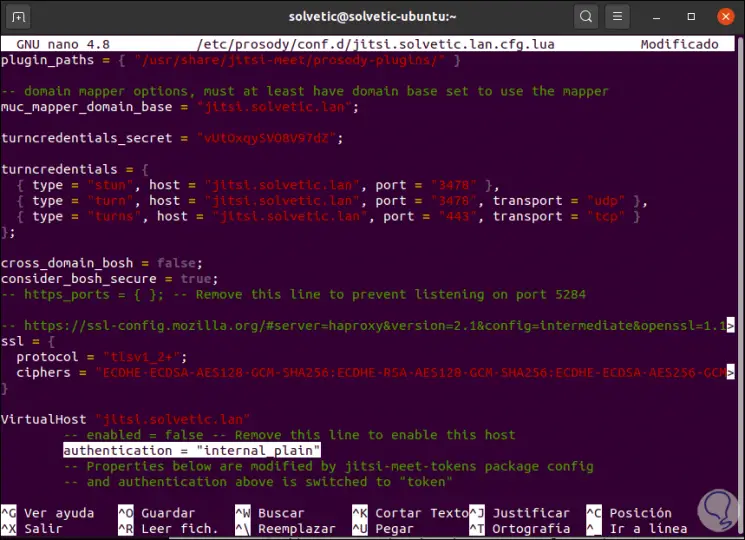

- #Jitsi meet server install ubuntu 20.04 how to#
- #Jitsi meet server install ubuntu 20.04 update#
- #Jitsi meet server install ubuntu 20.04 download#
In case, if you don’t have a TLS certificate for your Jitsi domain then select the option ‘Generate a new self-signed certificate’. Then you will be asked to create and use a self-signed TLS certificate or use an existing one if you have one. While installing the Jitsi meet, you will be prompted to enter the domain name that you would wish to use for your Jitsi Meet instance.

#Jitsi meet server install ubuntu 20.04 update#
deb stable/įinally, update the system to collect the package list from the Jitsi repository and then install the jitsi-meet package. Now add the below line into the file for the Jitsi repository. Then add the Jitsi repository to the server by creating a new source file that contains the Jitsi repository. Now delete the GPG key file as it is no longer needed. Then add the GPG key to apt’s keyring using the apt-key utility.
#Jitsi meet server install ubuntu 20.04 download#
$ sudo ufw statusįirst, we download the Jitsi GPG key with the wget downloading utility. You can check that if they are added or not by running the below command. The ports that we need to open are 80/tcp, 443/tcp, 4443/tcp 10000/udp.Įxecute the below commands to open the ports. Now the Jitsi server needs some ports opened so that it can communicate with the call clients. Local mapping of Jitsi Meet server’s domain name to 127.0.0.1 is necessary because its server uses several networked processes on the server that accept local connections on the 127.0.0.1 IP address. You can do it by opening the /etc/hosts with a text editor: $ sudo nano /etc/hostsĪdd the below line into the file. Next, set a local mapping of the server’s hostname to the loopback IP address, 127.0.0.1. It will return the hostname that is set with the hostnamectl command. $ sudo hostnamectl set-hostname jitsi.your_domainĬonfirm if it was successful or not by running the below command. Run the below command to set the current hostname and modify the /etc/hostname that will hold the system’s hostname between reboots. Then resolve that hostname to the localhost IP, 127.0.0.1. Now let’s take a look at how our Support Engineers install the Jitsi Meet.įirst, log in to the server as the non-root, sudo-enabled user.įirst, we need to change the system’s hostname to match the domain name that we intend to use for the Jitsi Meet instance.
#Jitsi meet server install ubuntu 20.04 how to#
How to install Jitsi Meet on Ubuntu 20.04 Moreover, it provides comparable functionality to a Zoom or Skype conference call. It provides video conference rooms for multiple people which you can access using your browser. Jitsi Meet is an open-source video-conferencing and instant messaging applications for the web platform, Windows, Linux, macOS, iOS, and Android.Īlso, it is mainly based on WebRTC (Web Real-Time Communication). Today we’ll see how to install Jitsi meet on Ubuntu. Here at Bobcares, we have seen several such Ubuntu related installations as part of our Server Management Services for web hosts and online service providers. Are you looking for steps to install Jitsi meet on Ubuntu? Take a peek at this blog.


 0 kommentar(er)
0 kommentar(er)
